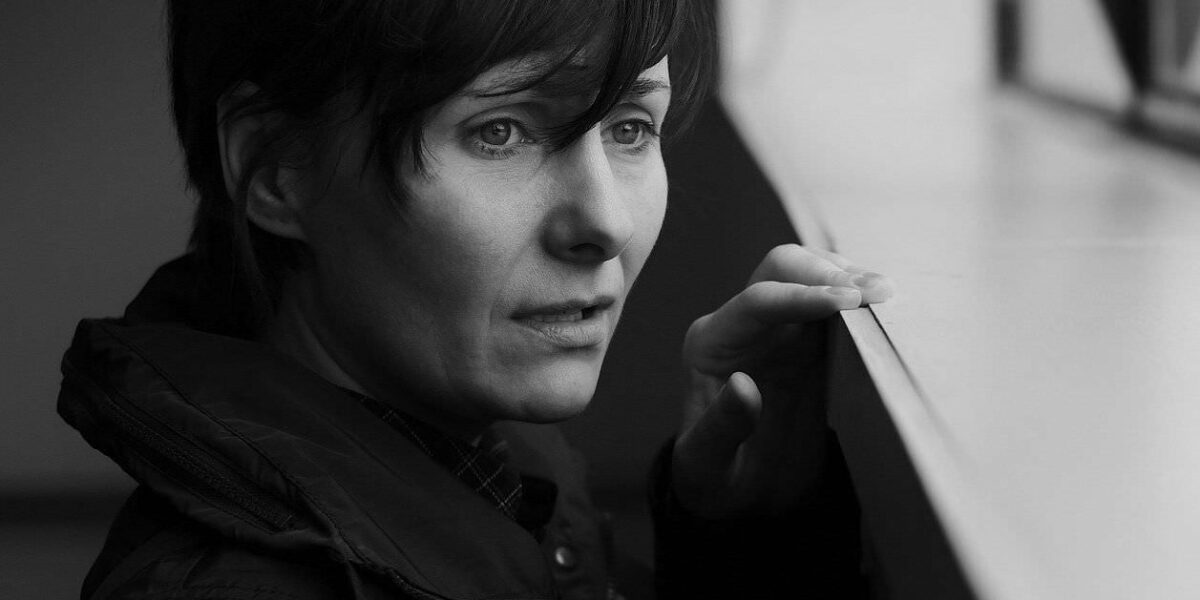Coping with grief and loss is one of the hardest challenges that we face in our lives. Even as grief affects us all at some point in our lives, some more than others, most people do not know much about it.
Here in this post, we will discuss grief and how you can cope with it in detail. Read on.
In this article
What is grief?
Grief is intense sorrow, especially caused by someone’s death or loss of the dear possession. It is a feeling of extreme sadness that leaves a person overwhelmed with a rush of mixed emotions.
Clinically, grief is a natural response to loss, particularly to the loss of someone. It is similar to word – bereaved – which means deprived of a close relation or friend through their death.
Other, closely related words include agony, sorrow, suffering, etc.
Grief is essentially the pain of mind arising from misfortune, significant personal loss, misconduct of oneself or others, etc.; sorrow, sadness, bereavement, etc.
What are the reasons or causes that trigger grief, sorrow, bereavement, or agony?
We develop grief when we lose a living being or a material thing that we held dear.
The sorrow is in proportion to how much we loved what has been lost.
This entire process is based on the intensity of attachment and involvement with the person, living being, or the matter.
Depending upon the severity of the trigger, grief can be mild or intense. Some of the common triggers of grief include the death of a person, loss of health, divorce, relationship breakup, financial/legal hurdles, addiction, etc.
At times, subtle losses such as the loss of a familiar neighborhood or friends when you move to a different city can also result in grief.
Whatever the root cause of loss, it is important that you do not feel ashamed about it. It is possible that no one except you really understands how you feel for having lost someone or something you held dear.
It’s okay to grieve the loss.
There are healthy ways to deal with and overcome the pain associated with grief.
The Process of grief and loss
Different people experience grief differently.
How you grieve depends on your personality traits, coping capability, temperament, life experiences that you have learned from, your faith, and how emotionally attached you were to the person, living being, or possession you lost.
Recovery from grief happens gradually.
A person cannot rush through the grieving process and there is no fixed timeframe. While some people may feel better within a few weeks or months, others may take up to a year or longer to heal.
Be patient with yourself and the healing will take place in its own time, in its own way.
Stages of grief
Let us take an overview of the most popular models of grief that are studied or propagated in the Western world in the classrooms. These models have been generalized and depict the states of minds of the grief-stricken individual, based on the common or majority observations.
According to Elisabeth Kübler-Ross (1967), there is a five-stage model of grief:
1. Denial: Shock is replaced with the feeling of ‘can’t happen to me’
2. Anger: The emotional confusion that results from the loss may lead to anger which further leads to putting blame on someone or something
3. Bargaining: One tries to negotiate with a higher power in an attempt to change ‘what has occurred’
4. Depression: A period of sadness and loneliness follows next in which a person reflects on their grief and loss
5. Acceptance: After having experienced the feeling of being depressed about the loss for a period of time, the person will eventually be at peace with ‘what had happened’
However, many other scholars later expanded the stages of grief to 7 or more.
The Critical Care nurse Wright (2011) expanded and interpreted model of grief in her own way as:
1. Shock & Denial: A numbed disbelief occurs after the devastation of a loss. A person may deny the reality or gravity of their loss at some level to avoid pain. The shock provides emotional protection from being overwhelmed all at once. This may last for weeks.
2. Pain & Guilt: Shock wears off and is replaced with the suffering of excruciating pain. It’s important to fully experience the pain and not numb it artificially.
3. Anger and Bargaining: Frustration leads to anger. Uncontrolled, it can permanently damage relationships. May result in trying to negotiate with one’s self (or a higher power) to attempt to change the loss that has occurred.
4. Depression, Reflection, & Loneliness: A long period of sad reflection overtakes a person, and the magnitude of the loss sets in.
5. The Upward Turn: Life becomes calmer, more organized as one starts to adjust to life with the loss that occurred.
6. Reconstruction & Working Through: As a person starts to become more functional, realistic solutions seem possible for life after the loss.
7. Acceptance & Hope: The last stage – a person learns to accept and deal with the reality of their situation. A person is more future-oriented and learns to cope.
In academics, such grief models are taught to the students of psychology, social scientists, and related scholars all over the world.
Myths and facts about grief and grieving
Myths about grief often lead family members and friends to have unrealistic expectations from a loved one who is grieving.
Therefore, it is important to dispel common myths about grief and grieving.
Many people believe that grief should at most last about a year. It’s a myth. The reality is that grief may stay with a person for a lifetime.
When we lose someone or something, that loss may stay with us for all our lives. Grief does become manageable or feels different with time.
For instance, grief due to the loss of a loved one may feel overwhelming for about a year or two. Even after many years, grief may exist in a minuscule form but it may no longer affect your physical or emotional wellbeing.
Keep in mind that moving on with your life does not imply you have simply forgotten the loss. It just means that you have accepted the loss and are focused on living a fulfilling life while keeping the one you lost in your memories.
Another common myth about grief is that one should just ignore the pain in order to quickly move past it.
Not allowing grief to come to the fore or ignoring pain is not the right way to overcome it. For lasting healing, a person must face their grief and deal with it.
People are divided on whether a person should act ‘strong’ or ‘cry’ in the face of grief. The fact is that there’s no set benchmark on how a person should ideally respond.
It is perfectly normal for a person to feel lonely, sad, or even frightened while grieving; crying is not a sign of weakness. So, even when a person is expected to shoulder greater responsibilities or take care of family members, they shouldn’t hesitate to show how they feel.
At the same time, it is not necessary for a person to cry. Some people do not express their sadness by crying even when they are immersed in it.
Physical symptoms of grief
Grief is not just an emotional process. Studies have revealed that grief actually weakens the body.
Grief batters the immune system, thus making a person more vulnerable to infections. It increases inflammation and can worsen existing health issues.
In some people, the heartbreak can even raise the risk of blood clots due to increased blood pressure.
At times, intense grief can even lead to a serious heart condition called ‘broken heart syndrome.’ It’s a serious heart disease that resembles a heart attack in symptoms.
Scientists have studied how the human brain reacts to the hurt of heartbreak and discovered that emotional pain in fact activates the same areas of the brain as physical pain.
Other physical symptoms of grief include headaches, dry mouth, shortness of breath, chest pain, nausea, fatigue, stomach pain, restlessness, and shortness of breath. A person may also lose their appetite or experience abrupt weight loss or weight gain due to grief.
If a serious physical symptom surfaces in a grieving person, it is advisable to immediately consult a doctor.
|| Also Read: Relationship Between Food and Stress
Mental symptoms of grief
Mental symptoms of grief typically include shock & disbelief, confusion, irritability, anxiety, anger, sadness, guilt, fear, and the inability to concentrate.
Among the emotional or mental symptoms of grief, profound sadness is the most common. It may surface as feelings of despair, loneliness, yearning, or emptiness.
At times, a grieving person may also get angry with themselves, God, the doctors, or even a loved one they just lost.
Grief can also trigger fear, making a person feel insecure and helpless. Fears may be about living without a loved one or taking on greater responsibilities. Some people also become fearful of their own or another family member’s death.
In some cases, a grieving person may have difficulty remembering ordinary things or experience gaps in memory.
Often, grief is aggravated by a feeling of guilt when a grieving person begins deeply regretting things they did or did not do. The feeling of guilt may or may not have a rational basis.
Denial of pain is not helpful. You must acknowledge your pain and understand that during the grieving process, you may experience many emotions.
Tips for coping with grief and loss
People mourning a significant loss often wonder if the grieving process can take a long time. They try to put artificial deadlines on their grief. This does not help.
Instead of fighting grief, it is important to acknowledge uncertainty.
Yes, grief will lessen with time. But, even an experienced therapist cannot predict when a grieving person will start feeling better.
The grieving process is all about learning to accept the loss and managing your sadness around it. It isn’t about ‘eliminating’ the sadness due to a loss.
Even when you have moved on in life, you may still feel sad when you are reminded of what you have lost and it’s okay to feel that way.
Next, you may start comparing your grief to that of other people. This is more common now in the age of social media and search engines. You may start wondering why you couldn’t get over your grief as quickly as another family member or why your former colleague bounced back so quickly after you were both laid off.
Such comparisons aren’t helpful. You do not have to ‘feel bad’ about ‘feeling bad.’ It will only make it harder for you to navigate the grieving process.
Do not try to evade difficult emotions or sadness. Grief will continue to persist for as long as you try to resist it.
So, instead of being afraid of sadness, you can intentionally approach it in a systematic manner and learn to manage it.
For instance, you can set aside 10-15 minutes each day to write a journal and describe your sadness or watch old videos and photographs that remind you of a major loss. Such intentional grieving lets your brain validate your suffering and then, wade through it.
Social support can play a vital role during the grieving process. But it doesn’t just mean you join a support group, have long conversations (about grief) with near and dear ones, or see a therapist.
Seeking social support can also mean meeting your best friend at a café and talking about movies, politics, sports, etc. or visiting your favorite hangout in the city.
Do not let yourself believe that you need to talk about your grief with your friends and family all the time. If you don’t feel like doing it, well, talk about something else.
Lastly, do not ignore self-care.
When your life is thrown into disarray, you must make an effort to hold on to healthy habits.
Try not to avoid bedtime; maintain a healthy diet and continue with routine physical activities to keep your energy levels high.
Helping someone who’s grieving
It can be difficult to figure out what to say or do when someone you love is grieving. The bereaved have to deal with numerous physical and mental symptoms of grief.
It is natural to feel afraid of intruding, mentioning the wrong things, or making a loved one feel even worse. Yes, it isn’t exactly easy to help someone who’s grieving.
But, do not allow this discomfort to keep you from trying.
You can help your grieved loved one better if you understand the process of grieving.
Remember, there is no wrong or right way of grieving. There is no fixed endpoint for grief and each person may experience different emotions or react in a different manner.
Instead of focusing too much on what to say, just let your grieved one know that you are there to listen. To ‘listen’ is more important. The bereaved person needs to know that you acknowledge their loss and are trying to understand how they feel.
They may cry on your shoulder, share memories, or vent their emotions in front of you.
You can express your concern when you feel the time is right and let them talk about their loss. Do not hesitate to ask how they feel. Do not judge them for how they feel and offer your support.
Some practical ways you can help a grieving person include helping them with funeral arrangements, taking them to lunch/movie, sharing an activity you both enjoy, doing house chores, looking after their pets, etc.
Keep watching for any potential signs of depression such as an extreme focus on loss, complete neglect of personal hygiene, loss of appetite, excessive consumption of alcohol or drugs, extreme bitterness or anger, etc.
How to live and learn from great loss
The people we love deeply become a part of us, physically and emotionally. They are present in millions of pathways in the brain where memories are created, stored, retrieved at will, or when there is a trigger.
So, there is nothing that can prepare you for a great loss. Even knowing that a loved one battling an incurable disease will soon depart cannot prepare you for their death.
Intense pain as a result of a major loss will follow one way or the other and it’s normal.
Each human being experiences intense grief at some point in their lives. It’s a natural process and the healing begins when you start accepting that you cannot go back in time or change events that have already occurred.
As you accept your grief, you will slowly begin to cherish the joyful memories of the past you had with your loved one.
There are no immortals amongst us. Sooner or later, each one of us will depart this world. This is a well-known fact but a deeper, subconscious realization dawns upon us after we accept a great loss and prepare to learn from it.
Instead of being constantly worried about tomorrow or immersed deep in the past, we learn to be in the moment and live fully.
We learn to lovingly remember those we’ve lost and love those we still have with us, even more deeply.
Most people can recover from a great loss on their own through the passage of time. They just need social support and healthy habits.






